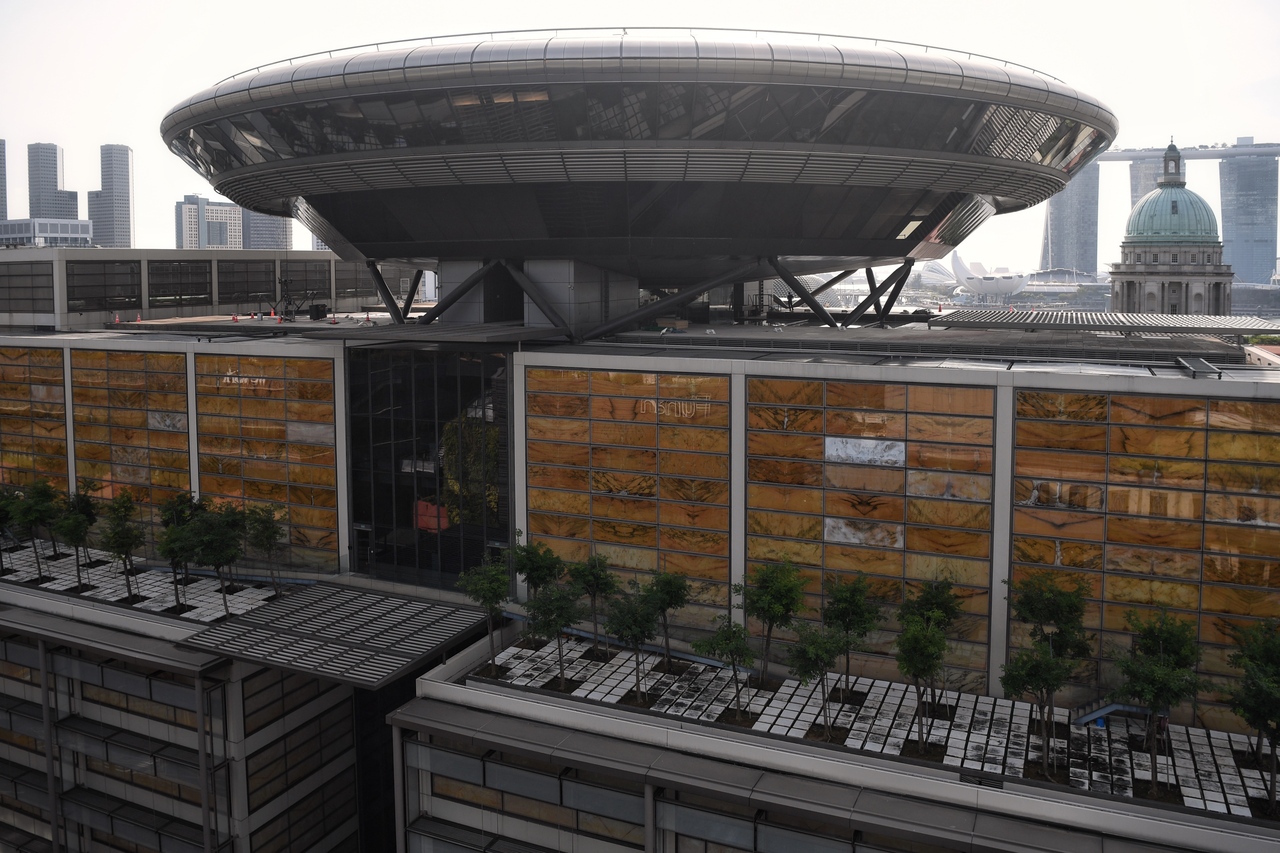Court process unsuitable for appeals under anti-foreign interference law: Shanmugam
Sign up now: Get ST's newsletters delivered to your inbox

Appeals against directions issued under a proposed law to counter foreign interference should be heard by an independent reviewing tribunal instead of the courts.
ST PHOTO: KUA CHEE SIONG
SINGAPORE - Appeals against directions issued under a proposed law to counter foreign interference should be heard by an independent reviewing tribunal instead of the courts, to protect sensitive information, said Law and Home Affairs Minister K. Shanmugam.
"For example, we may determine foreign interference based on a tip-off, sensitive information shared by a foreign counterpart security agency, and the consequences of a leak would be very serious," he told Parliament during the debate on the draft law on Monday (Oct 4).
Under the Foreign Interference (Countermeasures) Act (Fica), decisions made by the Minister for Home Affairs and the reviewing tribunal on appeals against directions to counter hostile information campaigns of foreign origin are final and not to be challenged in court.
The tribunal will be appointed by the President and chaired by a High Court judge. It is not part of the Singapore judicial system.
Workers' Party MP He Ting Ru (Sengkang GRC) had suggested amending the Bill to allow appeals to be made to the High Court instead of a tribunal.
Mr Shanmugam noted that the court process would require the Government to set out its case publicly, months in advance of a trial, and to enter documents into evidence. There is also a lengthy process of witnesses being asked to give evidence, cross-examination and time needed for judges to make a decision.
"Assume we get an intel tip-off from a foreign agency… Will we be able to get the intel contact to come to court? They will just not hear us, we won't even get a response, and that will be the end of the cooperation," Mr Shanmugam said.
"If we think the tip-off has some merit, we do our own investigations and then issue directions. If the person is not happy, he appeals to the tribunal."
Mr Shanmugam also made the point that documents and information filed in court can easily be leaked to the public. It also may not make sense to hand highly secret intelligence to suspects or their lawyers, he added.
He also cited other pieces of legislation in Singapore that, like Fica, provide for tribunals and limit the courts' power of judicial review for various reasons.
Orders and decisions issued under the Maintenance of Religious Harmony Act (MRHA), for example, are final and not subject to judicial review.
This is because the trial process may not be the best way to deal with religious issues, as it can deepen fault lines, encourage martyrdom and inflame tensions, the minister said.
Orders made under the MRHA can include restraining a person from addressing any congregation and contributing to any religious publication, among other things.
Orders can also be made against religious groups to prohibit them from receiving donations from foreign donors, require their entire governing body to be Singaporeans, or require them to suspend or remove specific foreigners from office.
"In some ways, these orders are more serious and what can be made under Fica. The religious groups were initially concerned. We talked to them, we explained, we showed how our powers have been exercised… and they understood and accepted it," he said.
Mr Shanmugam also cited the Land Acquisition Act, where the value of a person's property being acquired by the Government is determined by a tribunal and appeals are heard by an appeals board.
This is because Singapore, as a small country, needs the power to acquire land quickly, and not be tied up with the usual litigation process, he said.
Other laws like the Immigration Act and the Employment of Foreign Manpower Act contain similar provisions.
And under the Internal Security Act (ISA) and the Criminal Law (Temporary Provisions) Act (CLTPA), which both provide for detention without trial, the rights of accused persons are protected and dealt with by tribunals.
In the case of Fica, Mr Shanmugam questioned if it would be possible to deal with cases of foreign interference through a normal court process.
"Often, we don't even name the countries involved. Can you imagine naming one of our neighbours in court, or a much larger country?" he said.
"When we asked (Chinese-American academic) Huang Jing to leave, we didn't say who he was acting for. Why? The foreign policy and national security implications are too serious."
Mr Shanmugam also acknowledged that there is a risk of Fica being abused by a rogue government.
But this has to be weighed against rogue foreign interference, which is a far greater risk, he said.
He noted that the tribunal's decisions will be published, the public will be able to assess cases of potential abuse for themselves.
"And ultimately, people have the final say. People won't stand for a rogue government."
The minister added that the other laws like the MRHA, the CLTPA and the Land Acquisition Act also carry the risk of abuse, but are necessary despite the trade-offs.
"(Fica) gives the Government a set of tools that can help. It is not a complete defence against foreign interference, but it can help," he said.
"The Bill represents the best balance that we can find between dealing with the risks and providing checks against abuse."


